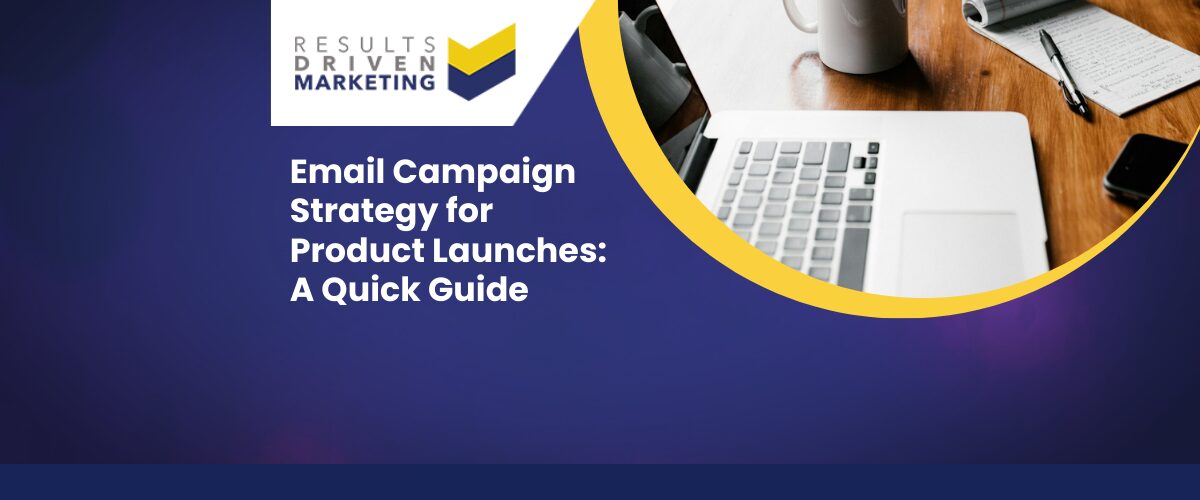
How to Effectively Utilise a Business Leads Database
In today’s fast-paced business environment, a business leads database is an indispensable tool for companies looking to grow their customer base and increase revenue. But what exactly is a business leads database? Essentially, it’s a centralised repository of potential customer information that can be used by sales and marketing teams to identify and target prospects. These databases typically contain a wealth of data, such as contact information, company details, buying behaviour, and more.
Effectively utilising a business leads database can significantly impact your bottom line. When used correctly, it can help you streamline your lead generation process, improve customer engagement, and ultimately, maximise your return on investment (ROI). In this article, we’ll explore strategies for optimising your business leads database to ensure you’re getting the most out of it. We’ll discuss best practices for data management, tools that can aid in this process, and techniques for effective lead management.
By the end of this article, you’ll have a clear understanding of how to leverage your business leads database to its fullest potential, ensuring that every lead is a step closer to conversion and every effort contributes to your overall success.
Table of contents:
Understanding Your Business Leads Database
Definition and Purpose
A business leads database is essentially a centralised collection of potential customer information. It’s designed to help businesses manage and utilise their leads more effectively. This database can store various types of data, including contact details, company information, interaction history, and much more.
The main purpose of a business leads database is to streamline the lead management process, enabling businesses to identify, track, and engage potential customers more efficiently.
By consolidating all this valuable information in one place, a business leads database provides a solid foundation for your sales and marketing efforts. It allows your team to access detailed insights about each lead, facilitating better decision-making and more targeted communication. In short, a well-maintained business leads database can significantly enhance your lead generation and conversion strategies.
Types of Business Leads Databases
There are several types of business leads databases, each catering to different needs and preferences. Here are some of the most common types:
- CRM-Integrated Databases:
- Customer Relationship Management (CRM) Systems: These databases are integrated into CRM software, offering a comprehensive solution for managing customer interactions and sales processes. Popular CRM tools like Salesforce, HubSpot, and Zoho CRM include built-in business leads databases that help track and nurture leads throughout the sales funnel.
- Standalone Databases:
- Independent Solutions: These are dedicated databases designed specifically for storing and managing leads. They can be used independently or integrated with other tools and systems. Examples include LeadSquared and Clearbit.
- Cloud-Based Databases:
- Cloud Solutions: These databases are hosted on the cloud, providing easy access from anywhere with an internet connection. They offer scalability and flexibility, making them ideal for businesses of all sizes. Examples include Airtable and Google BigQuery.
Each type of business leads database has its own advantages, and the best choice depends on your specific business needs and objectives. For instance, CRM-integrated databases are great for businesses that require a comprehensive system to manage all customer interactions, while standalone databases might be suitable for companies looking for a specialized solution.
Importance of High-Quality, Accurate Data
The success of your business leads database heavily depends on the quality and accuracy of the data it contains. High-quality, accurate data ensures that your marketing and sales efforts are targeted and effective. Here’s why it’s crucial:
- Enhanced Targeting: Accurate data allows you to segment your leads more effectively, enabling personalized communication that resonates with each segment. This targeted approach can significantly increase your conversion rates.
- Better Decision Making: With reliable data, your sales and marketing teams can make informed decisions about where to focus their efforts. This leads to more efficient use of resources and better outcomes.
- Improved Customer Relationships: High-quality data helps you understand your leads better, allowing you to tailor your interactions and build stronger relationships. This personalised approach can lead to higher customer satisfaction and loyalty.
- Increased Efficiency: Clean, accurate data reduces the time and effort required to manage and process leads. Your team can spend more time engaging with prospects and less time dealing with data issues.
Maintaining high-quality, accurate data in your business leads database involves regular cleaning and updating, verifying information, and using data enrichment tools to fill in any gaps. By prioritising data quality, you can ensure that your business leads database remains a valuable asset that drives your sales and marketing success.
Best Practices for Effective Use
Maximising the potential of your business leads database requires implementing best practices that ensure data quality, effective segmentation, personalised communication, and robust tracking and analytics. Let’s dive into these essential strategies.
Data Quality Management
Maintaining high-quality data in your business leads database is crucial for effective lead management. Here’s how to keep your data in top shape:
- Regular Data Cleaning and Updating:
- Consistency is Key: Schedule regular intervals for data cleaning to remove outdated or incorrect information.
- Automated Tools: Use data cleaning tools to automate the process and reduce manual effort. These tools can help identify duplicates, correct errors, and update information efficiently.
- Verifying Lead Information:
- Validation Processes: Implement processes to verify the accuracy of lead data at the point of entry. This could include email verification tools, phone number validation, and address verification services.
- Continuous Verification: Periodically re-verify lead information to ensure it remains accurate and up-to-date. This is especially important for dynamic data, such as contact details and job titles.
Segmentation and Targeting
Effective segmentation and targeting are essential for maximising the impact of your business leads database. Here’s how to do it:
- Creating Detailed Customer Profiles:
- Comprehensive Profiles: Gather detailed information about your leads, including demographics, behaviour, preferences, and pain points. The more comprehensive your profiles, the better you can tailor your marketing efforts.
- Use Enrichment Tools: Employ data enrichment tools to fill in gaps and enhance the profiles with additional relevant information.
- Using Segmentation to Target Specific Demographics or Behaviours:
- Segmentation Criteria: Use criteria such as industry, company size, geographic location, and purchasing behaviour to segment your leads.
- Behavioural Segmentation: Segment leads based on their interactions with your brand, such as website visits, email engagement, and past purchases. This helps in crafting highly relevant messages.
Personalised Communication
Personalised communication is a powerful way to engage leads and nurture them through the sales funnel. Here’s how to leverage your business leads database for personalised outreach:
- Crafting Personalised Messages for Different Segments:
- Tailored Content: Use the insights from your segmentation efforts to create personalised messages that address the specific needs and interests of each segment.
- Dynamic Content: Implement dynamic content in your emails and marketing materials that changes based on the lead’s profile and behaviour.
- Importance of Timely Follow-Ups and Engagement:
- Prompt Responses: Ensure that your follow-ups are timely and relevant. Respond to inquiries and engagement promptly to keep the lead warm.
- Engagement Strategies: Use a mix of communication channels such as email, social media, and phone calls to maintain consistent engagement with your leads.
Tracking and Analytics
Tracking and analytics are critical for measuring the effectiveness of your lead management efforts and making data-driven decisions. Here’s how to integrate tracking and analytics into your business leads database strategy:
- Monitoring Lead Interaction and Engagement:
- Engagement Metrics: Track metrics such as email open rates, click-through rates, website visits, and social media interactions to gauge lead engagement.
- Lead Scoring: Implement a lead scoring system to prioritize leads based on their level of engagement and likelihood to convert.
- Using Analytics to Measure the Effectiveness of Campaigns:
- Campaign Analysis: Use analytics tools to measure the performance of your marketing campaigns. Look at metrics such as conversion rates, cost per lead, and ROI to assess effectiveness.
- Continuous Improvement: Regularly review your analytics data to identify trends and areas for improvement. Use these insights to refine your strategies and optimise your business leads database.
By following these best practices, you can ensure that your business leads database remains a powerful tool for driving sales and marketing success. With high-quality data, effective segmentation, personalised communication, and robust tracking and analytics, you’ll be well-equipped to maximise your ROI and achieve your business goals.
Tools and Techniques for Optimization
To get the most out of your business leads database, leveraging the right tools and techniques is essential. These tools can streamline your processes, enhance your data, and automate tasks, ultimately helping you maximize your ROI. Let’s explore some key tools and techniques that can take your business leads database to the next level.
CRM Software
Customer Relationship Management (CRM) software is integral to effectively managing a business leads database. Here’s an overview of some popular CRM tools and the benefits they offer:
- Overview of Popular CRM Tools:
- Salesforce: One of the most widely used CRM platforms, Salesforce integrates seamlessly with business leads databases, offering robust features for lead tracking, customer management, and sales forecasting.
- HubSpot: Known for its user-friendly interface, HubSpot CRM is perfect for businesses of all sizes. It provides comprehensive tools for lead management, marketing automation, and customer service.
- Zoho CRM: Zoho CRM offers a flexible and customisable solution, with powerful automation features and integration capabilities that make managing a business leads database a breeze.
- Benefits of Using CRM for Lead Management:
- Centralised Data: CRMs centralise all your lead information in one place, making it easy for your sales and marketing teams to access and update data.
- Improved Collaboration: With a CRM, team members can collaborate more effectively, sharing insights and working together to nurture leads.
- Enhanced Customer Insights: CRMs provide valuable insights into customer behaviour and preferences, enabling more personalised and targeted communication.
- Automation Capabilities: CRMs automate repetitive tasks such as email follow-ups and lead scoring, freeing up your team to focus on high-value activities.
Automation Tools
Automation tools are game-changers when it comes to managing a business leads database. They help streamline processes, save time, and ensure that no lead falls through the cracks.
- Email Marketing Automation:
- Automated Campaigns: Tools like Responder! allow you to set up automated email campaigns that nurture leads with personalised content based on their behaviour and interactions.
- Triggered Emails: Use triggers such as website visits or email opens to send timely and relevant messages, keeping your leads engaged and moving them through the sales funnel.
- Lead Scoring and Nurturing Automation:
- Lead Scoring Systems: Platforms like Marketo and Pardot offer sophisticated lead scoring systems that assign scores based on a lead’s engagement level, helping you prioritise high-potential leads.
- Automated Nurturing: These tools also provide automated nurturing workflows that guide leads through the buyer’s journey with targeted content and timely follow-ups.
Data Enrichment Tools
Enhancing the quality of your business leads database is crucial for effective targeting and personalization. Data enrichment tools can add valuable information to your lead profiles, giving you a more complete picture of your prospects.
- Services That Provide Additional Information on Leads:
- Clearbit: Clearbit offers real-time data enrichment, adding comprehensive company and contact information to your business leads database. This includes firmographic, demographic, and technographic data.
- ZoomInfo: ZoomInfo provides access to a vast database of business information, helping you enrich your leads with detailed profiles, including job titles, company details, and contact information.
- Enhancing Lead Profiles for Better Targeting:
- Comprehensive Profiles: Enriched data helps create detailed lead profiles, allowing for more accurate segmentation and personalised communication.
- Better Targeting: With enriched profiles, you can better understand your leads’ needs and preferences, enabling you to target your marketing efforts more effectively.
By utilising these tools and techniques, you can optimise your business leads database, ensuring that it remains a powerful asset for your sales and marketing teams. From CRM software that centralises data and improves collaboration, to automation tools that streamline processes, and data enrichment tools that enhance lead profiles, these resources will help you maximise the potential of your business leads database and drive better results.
Strategies for Maximising ROI
When it comes to maximising ROI from your business leads database, having the right strategies in place is crucial. Here are some effective approaches to ensure you’re making the most out of your leads and driving substantial returns.
Focus on High-Quality Leads
- Prioritising Leads Based on Quality and Potential Conversion:
- Lead Scoring: Implement a lead scoring system to rank leads based on their potential to convert. Assign points based on factors like engagement level, demographics, and firmographics.
- High-Quality Leads: Focus your efforts on leads with higher scores, as they are more likely to convert into paying customers. This prioritisation helps in using your resources more efficiently.
By concentrating on high-quality leads, you can ensure that your marketing and sales efforts yield better results, ultimately boosting your ROI.
Effective Follow-Up Processes
- Creating a Structured Follow-Up Schedule:
- Timely Follow-Ups: Develop a follow-up schedule that ensures leads are contacted promptly. This could be immediately after an initial inquiry, or at regular intervals during the nurturing process.
- Consistency: Maintain a consistent follow-up cadence. Regular touch points keep your leads engaged and show that you value their interest.
- Ensuring Consistent and Meaningful Contact with Leads:
- Personalised Follow-Ups: Personalise your follow-up messages to address the specific needs and interests of each lead. This can significantly enhance engagement.
- Multi-Touch Strategy: Use a combination of emails, phone calls, and social media interactions to maintain contact and build relationships.
Structured and consistent follow-ups are key to nurturing leads effectively, keeping them warm, and moving them closer to conversion.
Leveraging Multi-Channel Approaches
- Combining Email, Social Media, and Direct Contact:
- Integrated Campaigns: Create integrated marketing campaigns that utilise multiple channels. For example, send an email followed by a social media message and a phone call.
- Channel Synergy: Each channel complements the others, providing multiple touch points and reinforcing your message.
- Benefits of a Multi-Channel Strategy for Lead Engagement:
- Broader Reach: Engaging leads across different channels increases your chances of reaching them where they are most active.
- Enhanced Engagement: Multi-channel approaches provide more opportunities for interaction, leading to higher engagement rates.
Using a multi-channel strategy ensures that your business leads database is being utilised to its fullest potential, engaging leads in various ways and increasing the likelihood of conversion.
Continuous Improvement
- Regularly Reviewing and Refining Strategies Based on Performance Data:
- Performance Metrics: Regularly analyse metrics such as conversion rates, engagement levels, and ROI to assess the effectiveness of your strategies.
- Iterative Improvements: Use these insights to make data-driven adjustments to your lead management processes. Continuous refinement helps in optimising performance.
- Staying Updated with New Tools and Techniques:
- Industry Trends: Keep an eye on industry trends and emerging technologies that can enhance your business leads database.
- Continuous Learning: Invest in ongoing training and development for your team to ensure they are equipped with the latest skills and knowledge.
Continuous improvement ensures that your strategies evolve with changing market conditions and technological advancements, keeping your business leads database effective and up-to-date.
By focusing on high-quality leads, implementing effective follow-up processes, leveraging multi-channel approaches, and committing to continuous improvement, you can maximise the ROI from your business leads database. These strategies will help you turn more leads into customers, drive growth, and achieve greater success.
Conclusion
In conclusion, effectively utilising a business leads database is crucial for maximising your ROI and driving business growth. Let’s recap the key points discussed throughout this article:
- Understanding Your Business Leads Database: A business leads database is a centralised repository of potential customer information, essential for streamlined lead management. There are various types of databases, including CRM-integrated, standalone, and cloud-based, each with unique advantages. The quality of the data in your business leads database is paramount, ensuring accurate targeting and personalized communication.
- Best Practices for Effective Use: Maintaining data quality through regular cleaning and verification is fundamental. Effective segmentation and targeting help create detailed customer profiles and direct your marketing efforts towards specific demographics or behaviors. Personalised communication and timely follow-ups enhance engagement, while tracking and analytics provide insights into campaign effectiveness.
- Tools and Techniques for Optimisation: Leveraging CRM software like Salesforce, HubSpot, and Zoho CRM centralises data and improves collaboration. Automation tools streamline processes, such as email marketing automation and lead nurturing, while data enrichment tools enhance lead profiles for better targeting.
- Strategies for Maximising ROI: Prioritising high-quality leads ensures efficient resource use. Structured follow-up processes and multi-channel approaches increase engagement and conversion rates. Continuous improvement through regular performance reviews and staying updated with new tools and techniques ensures ongoing optimisation.
What else?
Effective lead database management is not just about storing information; it’s about using that data strategically to drive better outcomes. By implementing the strategies discussed, you can transform your business leads database into a powerful tool that boosts your sales and marketing efforts, ultimately leading to greater success and a higher ROI.
Now, it’s time to put these insights into action. Take the steps to enhance your business leads database management, and watch as your lead conversion rates improve, your customer relationships strengthen, and your business grows. Remember, the key to maximising ROI lies in the consistent and strategic use of your business leads database. Start implementing these strategies today and pave the way for a more prosperous future.
Who are we?
Dedicated to lead generation, Results Driven Marketing provides myriad services SMEs can trust to deliver results.
Our marketing lists are guaranteed accurate to industry high standards, and GDPR compliant and our experience team means that if you are looking to buy data, they make them totally bespoke and highly relevant whether you are looking for email lists, direct mailing lists or telemarketing lists.
Our email marketing software is highly rated. Responder provides the automation tools you need to put your marketing on autopilot.
We also supply email marketing solutions with our email marketing platform.
Call us today on 0191 406 6399 to discuss your specific needs.
Results Driven Marketing
info@rdmarketing.co.uk
0191 406 6399





